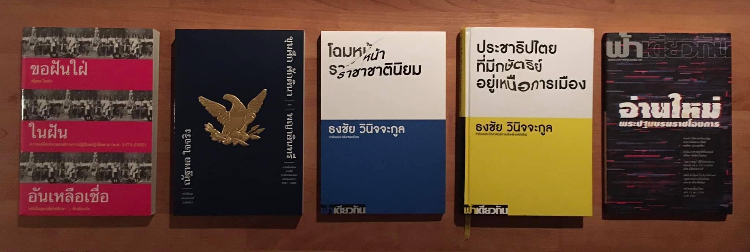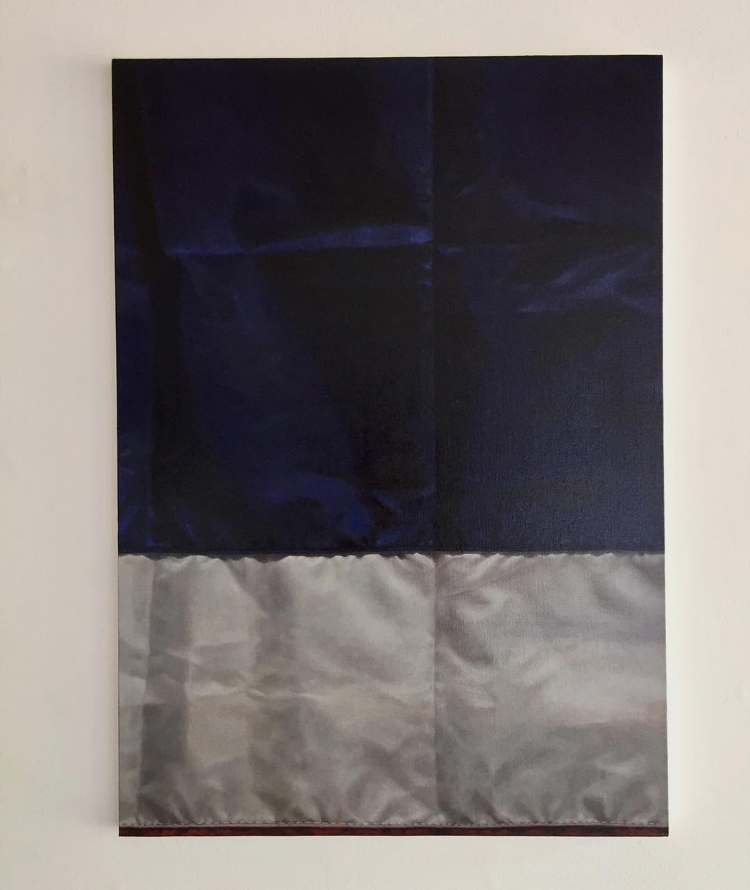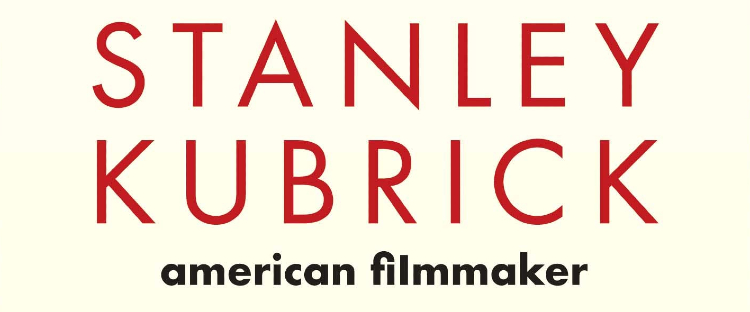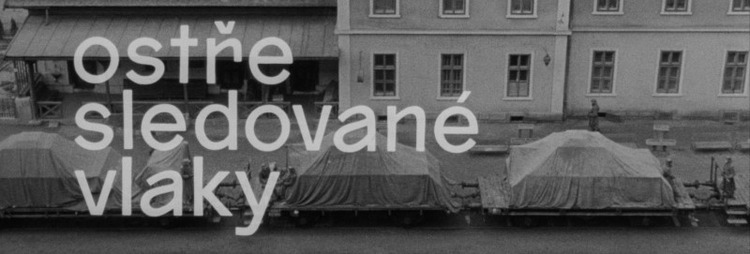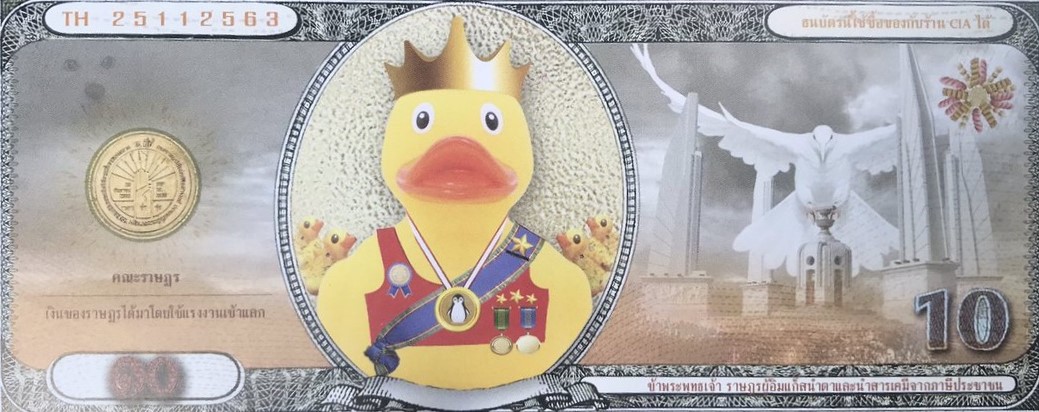
Police have launched an investigation into the mock banknotes that were distributed to protesters at an anti-government rally on 25th November. 3,000 of the coupons were issued at the protest, outside the headquarters of Siam Commercial Bank in Bangkok. Each coupon had a face value of ฿10, and could be used to purchase food from street vendors.
The coupons were produced by Khana Ratsadon, one of the groups leading the recent protest movement. (Its name is a tribute to the political party that launched the 1932 revolution, transforming Thailand from an absolute monarchy into a constitutional democracy.) The fake banknotes may result in counterfeiting charges, though—bearing an image of a bright yellow duck—they could hardly be mistaken for legal tender. (The duck is wearing a crown, which may also lead to charges of lèse-majesté.)
The rally itself was peaceful, though a man threw a ping-pong bomb while the crowd was dispersing. Shots were fired shortly afterwards by another man, wounding one of the protest guards. (Earlier this month, shots were fired at protesters outside parliament, injuring six people. At that rally, protesters used inflatable ducks to shield themselves from water cannon.)
The coupons were produced by Khana Ratsadon, one of the groups leading the recent protest movement. (Its name is a tribute to the political party that launched the 1932 revolution, transforming Thailand from an absolute monarchy into a constitutional democracy.) The fake banknotes may result in counterfeiting charges, though—bearing an image of a bright yellow duck—they could hardly be mistaken for legal tender. (The duck is wearing a crown, which may also lead to charges of lèse-majesté.)
The rally itself was peaceful, though a man threw a ping-pong bomb while the crowd was dispersing. Shots were fired shortly afterwards by another man, wounding one of the protest guards. (Earlier this month, shots were fired at protesters outside parliament, injuring six people. At that rally, protesters used inflatable ducks to shield themselves from water cannon.)




